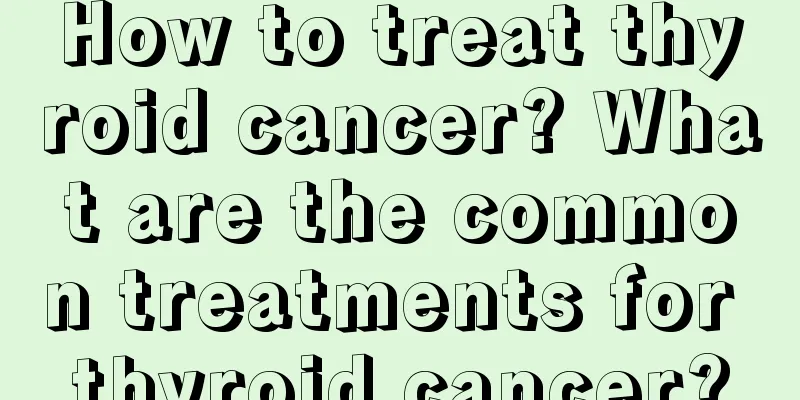What are the causes of toothache

|
There are many reasons that cause tooth pain. If you do not pay enough attention to oral hygiene, many oral diseases caused by the growth of bacteria in the mouth will also lead to swollen and painful teeth, and the gums will be particularly prone to bleeding. Teeth are close to the head, so the pain of toothache is extremely strong. So what are the diseases that cause toothache? Tooth swelling and pain Toothache refers to the swelling and pain of teeth caused by various reasons. It is one of the common symptoms of oral diseases and can be seen in Western medicine such as caries, pulpitis, periapical inflammation and dentin hypersensitivity. Toothache occurs or worsens when exposed to cold, hot, sour, sweet and other stimuli, which falls into the category of "toothache" and "alveolar wind" in traditional Chinese medicine. Red and swollen toothache The main symptoms usually occur in the gums of the upper and lower back molars. The onset is rapid and can also be called acute gingivitis, commonly known as "wind and fire toothache". The gums are severely swollen, and the pain point is mainly on the gums. The slightest touch will cause extreme pain. Not to mention chewing food, even opening the mouth will cause pain, which is more uncomfortable than a real toothache. In severe cases, there will be symptoms such as sore throat, swollen lymph nodes, fever, difficulty in defecation or constipation. The tongue coating is thick, dry or yellow, and the tongue is bright red. From these series of symptoms, it can be seen that the acute inflammation of the gums is caused by physical lesions (commonly known as "getting angry"), and the cause of the lesions is not caused by the gums and teeth in the mouth themselves, so this type of toothache is also called a complication of toothache. Toothache caused by tooth decay Commonly known as pulpitis or apical periodontitis. The symptoms of this type of toothache: the teeth have already developed cavities, and are particularly sensitive to stimulation from sugar, dairy products, cold, heat and other substances. Therefore, when an attack occurs, it is a bone-drilling pain, and is usually not accompanied by a reaction from the gums. This type of toothache usually hurts more at night than during the day, and more when lying down than when sitting. Neural toothache Commonly known as "false fire toothache". This type of toothache has no direct relationship with the gums or teeth. It is mostly caused by other reasons in the body that trigger hyperexcitement of the dental nerves and cause tooth root pain. This type of toothache may be caused by staying up late, diseases of other five or five sense organs, and headaches, so it is also listed as a concurrent toothache. This type of toothache usually occurs in adults or middle-aged and elderly people. It is a kind of nerve radiating soreness and dull pain. At this time, the teeth are obviously loose. This pain will not last long and will generally gradually ease and disappear after 2-3 days. Periodontitis Patients with periodontitis do not necessarily experience toothache, but it is caused by gum atrophy. Therefore, most patients are middle-aged and elderly people, and the scope of toothache varies. Some people only have pain in one tooth or two or three adjacent teeth. Some people experience pain in their upper and lower gums, or in a large area of their teeth. The reason for this phenomenon is that the pain of periodontitis is not caused by the teeth themselves, but by an anaerobic bacteria in the mouth that causes congestion and inflammation of the inner gums - that is, the periodontal tissues, which stimulates the dental nerves and causes pain (especially soreness), which directly aggravates the pain during the biting process. Causes Toothache. The Yangming meridians of the hands and feet respectively connect to the lower and upper teeth. Heat accumulates in the large intestine and stomach, or wind evil invades the meridians from the outside, accumulates in the Yangming and turns into fire. The fire evil then goes up along the meridians and causes toothache. The kidneys control bones, and teeth are the remains of bones. Insufficient kidney yin and rising of virtual fire can also cause toothache. There are also people who eat too much sweet and sour food, have unclean mouth and teeth, and let dirt corrode their teeth and cause pain. Therefore, toothache is mainly related to the hand and foot yangming meridians and the kidney meridian. Dental Diseases That Can Cause Tooth Pain ① Dental caries: Initial dental caries usually have no symptoms. When the dental cavities become larger and deeper, toothache may occur when eating. The pain will be aggravated when eating sweets or overcold or overheated foods. At this time, you can first use acid-proof and analgesic toothpaste, brush your teeth with warm water, and use folk remedies to relieve pain when necessary, but the most effective treatment method should be to fill the cavities. ② Pulpitis: It is mostly caused by pulp infection due to deep caries without filling, or caused by chemical drugs or temperature stimulation. The pain is spontaneous and paroxysmal, and may be accompanied by cold, hot stimulation pain and percussion pain. For emergency treatment of this type of toothache, you can take 300 mg of ibuprofen orally, twice a day, to relieve the pain, or use folk remedies to relieve the pain. The radical cure is to use a dental anvil to open the pulp cavity for endodontic treatment under local anesthesia. ③ Apical periodontitis: It is mostly caused by pulpitis spreading to the root canal orifice, causing inflammation of the tissues around the apex. Symptoms include persistent tooth pain. The affected tooth has a sense of elongation, and is obviously painful to touch and tenderness, and cannot bite food. At this time, you can take anti-inflammatory and analgesic drugs, such as 0.5 grams of vancomycin No. 4, 3 times a day; 0.4 grams of metronidazole, 3 times a day, 25 mg of indomethacin, 3 times a day; and eat soft food. You can also use folk remedies for emergency pain relief. Root canal treatment should be performed after the inflammation subsides. |
<<: Why do I have urinary incontinence when coughing?
>>: Eight habits that damage your teeth, beware!
Recommend
How to wash your hair with baking soda
Baking soda is actually the alkaline flour we oft...
If you accidentally get scalded by boiling water and leave scars, how should you deal with it promptly and correctly?
If you get scalded in your life, you should first...
Side effects of laser dark circle removal
Many people have dark circles under their eyes. I...
What is the special recipe for acid-base balance?
As long as the body's acid-base balance is ma...
Can wisdom teeth be removed if they haven't grown out yet?
It is definitely difficult to remove wisdom teeth...
What should I do if my newly-stretched hair becomes curved
When you just come back from the barber shop afte...
How to tie super short hair to look simple and good
It is said that women with short hair can also be...
What are the benefits of Bama foot bath?
Bama County, the birthplace of Bama Soup, is know...
Two ways to lose weight with grapefruit peels: teach you how to use grapefruit peels to lose weight
Pomelo is a common fruit eaten in winter. It is l...
Basis for early diagnosis of osteosarcoma
When people suspect that they have osteosarcoma, ...
Is drinking liquor every day good for your health?
Drinking liquor every day is not good for your he...
Postoperative recurrence of renal cancer
There are still ways to treat recurrent renal can...
What should I do if my legs are shaking due to nervousness during the second part of the exam?
Many people will be more or less nervous when tak...
Why do I keep getting acne on my right cheek?
Acne on the face is inevitable for almost everyon...
Are milk snakes poisonous?
Snakes are an animal that people are quite afraid...









